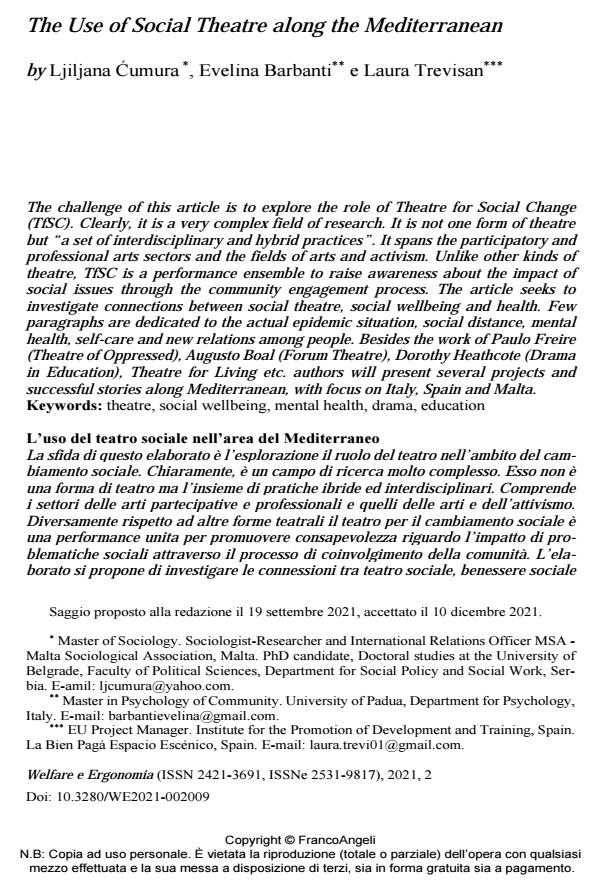The Use of Social Theatre along the Mediterranean
Journal title WELFARE E ERGONOMIA
Author/s Ljiljana Cumura, Evelina Barbanti, Laura Trevisan
Publishing Year 2022 Issue 2021/2
Language English Pages 16 P. 117-132 File size 348 KB
DOI 10.3280/WE2021-002009
DOI is like a bar code for intellectual property: to have more infomation
click here
Below, you can see the article first page
If you want to buy this article in PDF format, you can do it, following the instructions to buy download credits

FrancoAngeli is member of Publishers International Linking Association, Inc (PILA), a not-for-profit association which run the CrossRef service enabling links to and from online scholarly content.
The challenge of this article is to explore the role of Theatre for Social Change (TfSC). Clearly, it is a very complex field of research. It is not one form of theatre but "a set of interdisciplinary and hybrid practices". It spans the participatory and professional arts sectors and the fields of arts and activism. Unlike other kinds of theatre, TfSC is a performance ensemble to raise awareness about the impact of social issues through the community engagement process. The article seeks to investigate connections between social theatre, social wellbeing and health. Few paragraphs are dedicated to the actual epidemic situation, social distance, mental health, self-care and new relations among people. Besides the work of Paulo Freire (Theatre of Oppressed), Augusto Boal (Forum Theatre), Dorothy Heathcote (Drama in Education), Theatre for Living etc. authors will present several projects and successful stories along Mediterranean, with focus on Italy, Spain and Malta.
Keywords: theatre, social wellbeing, mental health, drama, education
Ljiljana Cumura, Evelina Barbanti, Laura Trevisan, The Use of Social Theatre along the Mediterranean in "WELFARE E ERGONOMIA" 2/2021, pp 117-132, DOI: 10.3280/WE2021-002009